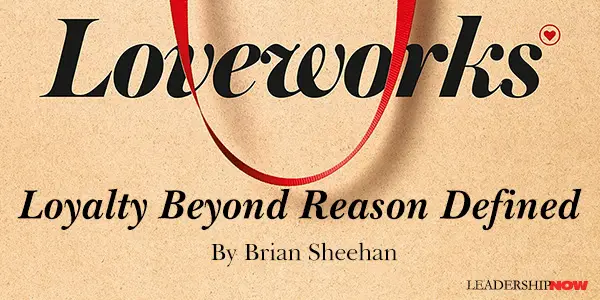 |
 |
07.18.13

Loyalty Beyond Reason Defined
EARLIER this year, star NFL quarterback Joe Flacco re-signed with Super Bowl champions the Baltimore Ravens in a record six-year contract worth $121 million. The deal made him the highest-paid player in the league. And how did he celebrate? Not with champagne, a new car, or an extravagant holiday. He went to McDonald's. Flacco marked this life-changing event with 10 chicken McNuggets, fries, and an unsweetened iced tea for $6.99. Call it instinct, call it a craving, call it whatever you like. Flacco could have gone anywhere and bought anything. His options were unlimited, and he chose McDonald's. That decision generated media coverage across the country as journalists and commentators marveled at why a man with everything would choose to celebrate such a huge occasion in such a normal way. For McDonald's, it was the best kind of brand exposure you can get. At some point in the past, they had won Joe Flacco over and at a high point in his life, picking up some McNuggets was just the natural fit. When it comes to the choices we make as consumers, we know emotion plays a big part in that process. For many people, they can't necessarily explain why they love one brand over another or why they might drive to three different stores to find it. Logic isn't often a factor. At Saatchi & Saatchi, we call it Loyalty Beyond Reason. Researchers in Australia recently had an opportunity to explore the idea of brand devotion, identifying companies such as Nike, Volkswagen, Harley-Davidson, and Louis Vuitton as having generated "cult-like" followings. However, the research ended up with a narrow focus on more extreme examples of consumer behavior that could be more readily classed as fanaticism. And herein lies the difficulty for behavioral analysts. Consumers who are loyal to a brand -- loyal beyond reason even – are not fanatics. They don't obsess over their purchases, they simply see them as an essential part of everyday life, because -- and this is crucial -- they have developed a relationship with a brand that is built on respect and love. It isn't possible for a brand to generate Loyalty Beyond Reason in its consumers if it isn't reliable or respected. It doesn't matter what you are selling -- toilet paper, cookies, cars, or services. Joe Flacco heads to McDonald's to celebrate a $121 million deal because that's where he feels comfortable and knows exactly what he's getting. To be loved, you have to deliver what you say you will. Repeatedly. Then you can take the next step and become the first choice. You can become a Lovemark.  Loveworks follows Brian's books Basics: Online Marketing (2010) and Basics: Marketing Management (2011). He has been published in Advertising Age, the Journal of Advertising Research, and in several peer-reviewed books and journals. In 2011 Brian was presented with the coveted Teaching Excellence Award by the Newhouse School's graduating class. 
Posted by Michael McKinney at 11:04 PM
|
BUILD YOUR KNOWLEDGE
 

How to Do Your Start-Up Right STRAIGHT TALK FOR START-UPS 
Grow Your Leadership Skills NEW AND UPCOMING LEADERSHIP BOOKS 
Leadership Minute BITE-SIZE CONCEPTS YOU CAN CHEW ON 
Classic Leadership Books BOOKS TO READ BEFORE YOU LEAD |